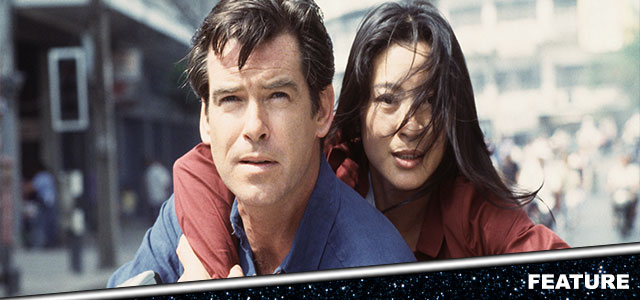
The 25th James Bond movie No Time To Die arrives in Cineworld in September, and we're counting down the days by revisiting all the 007 movies in chronological order of release.
In honour of Daniel Craig's swansong as 007, we're taking a nostalgic trip back through time. This week: Pierce Brosnan stars in Tomorrow Never Dies.
What is the story of Tomorrow Never Dies?
British warship the HMS Devonshire is sunk in mysterious circumstances; prior to the sinking, the crew believes itself to be in British international waters, but the Chinese government insists the vessel was in its territory. Even more mysteriously, newspaper Tomorrow is able to print stories of the sinking remarkably fast, which alerts the suspicion of MI6 and its lead operative James Bond/007 (Pierce Brosnan).
Bond is under orders to investigate Tomorrow's owner, the mysterious and rich industrialist Elliot Carver (Jonathan Pryce). After a dalliance with old flame, and Carver's current wife, Paris (Teri Hatcher), Bond discovers that Carver is engineering a war between Britain and China in order to boost the exclusivity of his publication, and his global standing as a media magnate. 007 must team up with his Chinese counterpart Wai Lin (Michelle Yeoh) in order to stop Carver before the world descends into World War III.
How did Tomorrow Never Dies get made?
The James Bond franchise had been restored to full health by the mid-1990s, spurred on by the critical and commercial success of Pierce Brosnan's 007 debut in GoldenEye. Directed by Martin Campbell (who would later enjoy success with 2006's Casino Royale), GoldenEye was an explosively self-aware adventure that located Bond, for the first time, in a post-Cold War environment. For his part, Brosnan was able to combine the urbane charm of Sean Connery with the wry humour of Roger Moore and just a dash of Timothy Dalton's raging anger, which manifests in Bond's personal struggle against friend-turned-enemy Alec Trevelyan (Sean Bean).
With more than $300 million in the bank, GoldenEye was a huge hit, which is all the more impressive when one considers the legal wranglings that preceded its development. It had initially looked like Bond would be put out to pasture permanently, and indeed this forced the resignation of Dalton himself. With Brosnan on board, however, the series enjoyed a new lease of life: glossier, more expensive and increasingly more outlandish to match the fearsome box office competition of the period.
Of course, it's always difficult following in the footsteps of a genuinely great 007 movie – just look at the shift from Casino Royale to 2008's Quantum of Solace as proof. GoldenEye's achievements laid down the gauntlet for follow-up movie Tomorrow Never Dies, the first Bond film released in the wake of producer Albert R. 'Cubby' Broccoli's death. (This movie is dedicated to his memory.) Along with his former production partner Harry Saltzman, Broccoli had essentially given birth to the Bond franchise, transforming it into one of the most lucrative movie properties the world had ever seen. The responsibility now fell to his daughter Barbara, who would go on to share credit with Michael G. Wilson, a long-time Bond producer and screenwriter with an in-depth understanding of the franchise.
Wilson said at the time: "You realize that there's a huge audience, and I guess you don't want to come out with a film that's going to somehow disappoint them." Even so, pre-production on Tomorrow Never Dies, particularly the scripting stage, was messy, which eventually spilled over into the start of principal photography. In fact, the script wasn't completed by the time filming began, forcing Brosnan to admit, "We had a script that wasn't functioning in some areas". Incidentally, the name of the script was originally 'Tomorrow Never Lies', but when distributor MGM was mistakenly sent a copy with word 'dies' instead, they insisted it remain.
Without an Ian Fleming source as a basis, the various drafts of the screenplay were batted around between many different writers. GoldenEye writer Bruce Feirstein wanted to draw on his background in journalism, the more satirical aspects of which eventually found their way into Jonathan Pryce's depiction of media mogul Elliot Carver, said to have been based on the infamous Robert Maxwell. ("I wanted to write something that was grounded in a nightmare of reality," Feirstein explained.) However, Feirstein's work had already trailed the involvement of several others, including a treatment by author Donald E. Westlake, who wanted to explore a villain that desired to destroy Hong Kong on the eve of its transfer of sovereignty to China in July 1997. However, the film's planned release date of December 1997 made this idea redundant, and it was back to the drawing board.
Feirstein's own draft was extensively reworked during a writer's room session organised by the producers and director Roger Spottiswoode; the latter took over from Martin Campbell after he declined to direct two Bond movies in a row. Star Trek II: The Wrath of Khan director Nicholas Meyer was among several writers involved, and arguments over the preferred version of the script, which was given a final once-over by Feirstein, continued well into the shooting schedule. Multiple arguments between crew members were alleged to have taken place, no doubt accentuated by the sizeable $110 million budget, the largest accorded to a Bond movie so far. No doubt the pressure was on to not only equal GoldenEye but exceed it.
This feverish desire to one-up the competition is what ultimately drowns Tomorrow Never Dies in a blizzard of excess, although it's still an entertaining ride, with some excellent moments. Its larger-than-life qualities are embodied in the villainous Carver, a part that was originally intended for Anthony Hopkins, who turned it down. (It's alleged in some quarters that Hopkins walked onto the set, witnessed the disarray occurring, and promptly walked away from the role.) Instead, veteran Shakespearean actor and Brazil cult favourite Jonathan Pryce brings hammy energy to Bond's nemesis: amusing, if not scary in the least.
That said, the topicality of Carver's media-manipulating role has grown in resonance in the era of fake news. At the time of Tomorrow Never Dies' release, both the character and scenario were dismissed as typically outlandish Bond megalomania; nowadays, with self-censorship and the distortion of fact and fiction propelled by social media, Carver seems eerily plausible. Are we due another Bond villain like this in the digital SEO era? If so, it would strike a particularly resonant chord. Here's hoping that they actually fashion a character who can match both physical and mental wits with Bond, as opposed to just mocking the heroine's martial arts skills in pantomime fashion.
Talking of which, for all of Tomorrow Never Dies' flaws (and there are many), Michelle Yeoh makes for one of the sparkiest, most entertaining sidekicks in the series. A huge star in her home country of Hong Kong at the time of the film's release, Yeoh fashions a character who is Bond's espionage equal, one rarely at a loss to escape dire physical situations. Well, at least until the very end where 007 is compelled to make a somewhat eye-rolling rescue – such compromises are emblematic of the Brosnan era, where every interesting decision is intercut by a need to resolve on a note of traditional Bond formula. Would that the Brosnan movies had the courage of their convictions.
Yeoh's casting is clearly an act of capitulation on the part of the producers. By 1997, the Asian market had boomed exponentially, boosted in large part by filmmakers like John Woo and Zhang Yimou; clearly there was money to be made from this burgeoning marketplace by casting a regional megastar. So committed was Yeoh to the role that she requested to do all of her own stunts, only to be blocked on insurance grounds by director Spottiswoode. Still, it's a pleasure watching Yeoh in her various fight scenes – rarely, if ever, has a female Bond character handled herself so well. Little wonder Brosnan described Yeoh as a "wonderful actress".
Less successful, perhaps, was the casting of Teri Hatcher in the role of the ill-fated Paris Carver, whose presence allows for a rare note of emotional anguish in 007. The on-set relationship between Brosnan and Hatcher was said to be strained and incompatible, with the latter's tardiness reportedly annoying Brosnan. (This was revealed to be down to Hatcher's pregnancy, forcing Brosnan to later apologise.) Clearly, Hatcher was cast because of her presence as Lois Lane in TV hit The New Adventures of Superman, but cynicism aside, she does fashion decent chemistry with Brosnan. Following a steamy (by 12-rated standards) love scene, Paris' subsequent murder at the hands of her vengeful husband Elliot (which he then plans to leak to the news) strikes a chilling note; it's therefore a shame this important story stranded is barely mentioned during the film's increasingly frenetic second half.
Interestingly, the producers had approached Monica Bellucci for the role of Paris, something Brosnan favoured. She was, however, turned down in favour of Hatcher, although she would later appear as the grieving widow of a terrorist in Daniel Craig movie Spectre, released in 2015.
Paris's death scene does allow for a scene-stealing appearance from the reliably odd Vincent Schiavelli (Ghost; Batman Returns), as Doctor Kaufman, an outrageously accented, German "pistol marksman" who could "shoot [Bond] from Stuttgart and still create the proper effect". It's one of the more memorable parts in the movie, and a sign of the quick wit that occasionally flashes through the messy screenplay. This extends to the return of Judi Dench's M and Samantha Bond's Moneypenny; when calling Bond in the midst of a tryst with a Danish professor at Oxford University, Moneypenny smirks, "You always were a cunning linguist, James". For her part, M's response to the accusation that she "doesn't have the balls for this job": "Perhaps... But the advantage is I don't have to think with them all the time."
The film's hefty budget allowed for a multitude of interesting locations in the classic Bond style, not to mention an endless onslaught of noisy and explosive set-pieces. Hamburg is where 007's journey begins; the exterior of the easily identifiable Atlantic Hotel is used. However, his long-overdue reunion with Paris was captured in Stoke Park, UK, best known as the location of the famous golf game in Goldfinger. Cinematographer Robert Elswit brilliantly captures the pensive mood of a damaged secret agent coming face to face with his past. (Elswit would later enjoy acclaim for his handsome compositions on the movies of Paul Thomas Anderson, including Boogie Nights and Magnolia.)
That famous BMW car chase, however (more on which momentarily), wasn't filmed in Hamburg, but the decidedly less glamorous Brent Cross Shopping Centre in London. The movie relocates to Saigon and the South China Sea in its second half; however, the production was denied access to Ho Chi Minh in Vietnam, which was intended for use in the movie. Instead, Bangkok filled in, as did the lush Phang Nga Bay in Thailand, which stands in for the fictional Kowloon Bay during the climactic assault on Carver's stealth ship.
And if we're talking hardware, then Tomorrow Never Dies is one of the most pumped-up and gadget-laden in the entire series. (It's also the movie in which Bond gives up his trusty Walther PPK firearm in favour of the new PP9.) The aforementioned stealth boat is where Carver's minions, led by the formidable Stamper (Gotz Otto) secretly launch an underwater turbine into the side of the HMS Devonshire, temporarily fooling the authorities into thinking it's been sunk by Chinese MIG aircraft. (The same drill also causes the death of Carver himself in one of the more memorably nasty Bond villain demises.)
The film also boasts one of Bond's greatest toys in the form of the BMW 750iL, the third of three BMWs used in the series as part of a product placement agreement. GoldenEye disappointed by not deploying its BMW Z3 Roadster; Tomorrow Never Dies makes up for that lapse during the Hamburg car park sequence, whose chaos-laden outcome is anticipated by a brilliant appearance from Desmond Llewelyn as the grumpy Q.
The vehicle is equipped with everything an agent escaping a tight corner needs, including smoke ejectors, missiles, stingers and a bolt cutter, not to mention the fact that it allows Bond to steer via touch-pad remote from the back seat. (The German-accented, in-car AI is also very funny.) It's one of the most outrageous, witty and entertaining car chase scenes in the entire series, given a considerable boost by Brosnan's reaction shots – an indication of how much more comfortable he was in the role of Bond compared to GoldenEye.
Brosnan's inherent charisma steers Tomorrow Never Dies through its onslaught of guns and chases, which becomes particularly apparent during the climax where 007 runs around wielding two machine guns in a manner more akin to Bruce Willis. (The film's violence was cut to get a theatrical 12 certificate; these cuts were later waived on a special edition DVD, resulting in a 15 rating. A later DVD release, with the cuts still waived, reduced the certificate again to 12.) Another enjoyable, if massively over-extended set-piece, comes during the motorbike/helicopter pursuit through Saigon, which nevertheless makes inventive use of the various marketplaces and rooftops. (Good thing, too, because that final shot of the dummy sitting at the controls of the chopper is beyond terrible.) The insane nature of this sequence is symptomatic of the Brosnan period: noisily entertaining, while largely devoid of emotional resonance and logic.
READ MORE
- No Time To Die and the 6 James Bond movies we never got to see
- 7 actors who could play James Bond after Daniel Craig retires
- Shaken and stirred! Daniel Craig's defining 007 moments
What music is on the Tomorrow Never Dies soundtrack?
One area in which Tomorrow Never Dies triumphs over GoldenEye is its score, composed by David Arnold. The latter film's soundtrack was composed in bleepy, screechy fashion by Eric Serra, which utterly failed to capture the essence of the Bond sound. When it came to Tomorrow Never Dies, it was time to return to brass tacks, honouring the lushly romantic spirit of Bond composer John Barry while also throwing in enough contemporary wrinkles.
Arnold was expertly positioned to capture all of these facets. Not only had he scored the symphonic powerhouses Stargate and Independence Day, he had also come to Barry's attention (and admiration) for re-arranging the composer's classic 007 pieces on the album Shaken and Stirred: The David Arnold James Bond Project. The project was a collaboration with group the Propellerheads, who would assist with the music for the Hamburg car chase sequence. (They themselves would gain infamy for their music during the lobby shootout sequence in 1999's The Matrix.)
After years of alternating between works by Barry, and scores from various substitutes (some inspired, others decidedly less so), it had become clear that Arnold was Barry's heir apparent. He had both the tongue in cheek intuition, rhythmic sense and affinity with electronic manipulation to update the Bond sound while also staying firmly within the parameters of the franchise. That said, it wasn't an entirely smooth operation: Arnold's intended title track 'Surrender', performed by k.d. lang, was instead bumped to the end credits at the very last minute, replaced by a song by Sheryl Crow. This accounts for the fact that the Surrender melody is used liberally throughout the Tomorrow Never Dies score, while Crow's opening credits number is never referenced in Arnold's music.
Effective though Crow's song is, Lang's version is arguably superior: a sensual, moody throwback to the heyday of Shirley Bassey, with Arnold's portentous orchestral backing a superb homage to Barry's influence. This competition between Arnold's own songs and those enforced by the producers would continue throughout the Brosnan and Craig eras, a sign of how money and influence were starting to talk within the franchise, even when it came to the music.
As for Arnold's accompanying underscore, it's terrific: a raucous, orchestral blast that makes liberal use of the horns and muted trumpets that had characterised Barry's style. The composer's ability with symphonic set-pieces becomes apparent in the mammoth, seven-minute opening track 'White Knight', accompanying Bond's jet plane escape from an incoming missile; the onslaught of percussion and brass is genuinely exciting and hair-raising, and makes terrific use of the Bond theme, as indeed does the rest of the score.
The score's deft incorporation of electronic elements becomes apparent in 'Backseat Driver' – aka the car chase scene. With its funky bassline and jazzy piano, not to mention rambunctious blasts of the 'Surrender' theme, it's one of the most entertaining bits of action music in the Bond canon, self-aware enough to be humorous, but dramatic enough to work within the context of the scene.
Another fearsome and extended musical action sequence comes in 'Bike Chase', another impressively complex track that liberally deploys the Bond theme to thrilling effect.
Bond's liaison with two women in the movie allows Arnold to conjure two love themes. The first of these, and the most memorable, is 'Bond and Paris', whose string arrangements are laced with a sense of longing. Sadly, given Paris's tragic fate, it doesn't hang around the score for long.
The score's second love theme, for Bond and Wai Lin, first emerges in a gorgeous Far Eastern arrangement in 'Kowloon Bay', a lovely throwback to the kind of location-specific tracks made famous by John Barry. This eventually surges into a rapturous, romantic statement during the climactic 'All In A Day's Work', where 007 saves Wai Lin from drowning – and the world from another devastating catastrophe. Arnold's mixture of sincerity and tongue in cheek giddiness strikes the perfect tone for the Bond universe; so impressed were the producers that he became the regular composer up until 2008's Quantum of Solace.
How was Tomorrow Never Dies received?
Whereas GoldenEye had relatively little box office competition to worry about, Tomorrow Never Dies had the misfortune of opening against James Cameron's Titanic, soon to become the highest-grossing movie of all time. (At least, until Avengers: Endgame toppled it in 2019.) That said, although Dies didn't open at number one, it stood up very well against Cameron's behemoth, grossing $333 million against its $110 million budget. That was just shy of GoldenEye's total gross, but a solid result nonetheless.
Critical response, however, was mixed, with many citing the movie's excessive action sequences and over-reliance on tired Bond tropes. In the Los Angeles Times, Kenneth Turan thought a lot of Tomorrow Never Dies had a "stodgy, been-there feeling", and Charles Taylor wrote for Salon.com that the film was "a flat, impersonal affair".
The movie also had its supporters though, including the esteemed critic Roger Ebert, who wrote, "Tomorrow Never Dies gets the job done, sometimes excitingly, often with style," with the villain "slightly more contemporary and plausible than usual", bringing "some subtler-than-usual satire into the film".
Box office gold and a mixture of critical apathy and grudging enthusiasm – was the Bond franchise headed anywhere in a hurry? The answer wasn't about to get any easier with the release of Brosnan's next movie.
What was the next movie in the James Bond series?
Pierce Brosnan returns as 007 in The World Is Not Enough, released in 1999.
When is No Time To Die released in the UK?
Click here to book your tickets for No Time To Die, which is released on 30th September. Don't forget to tweet us your favourite James Bond movies @Cineworld.
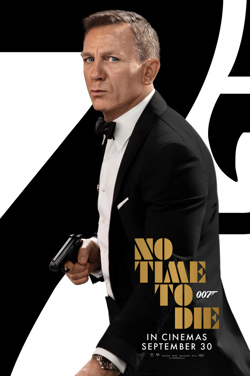

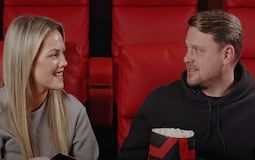
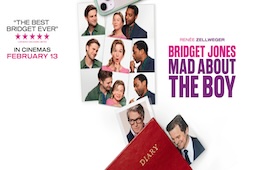
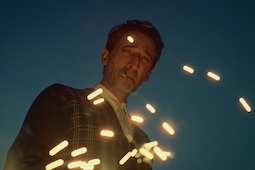
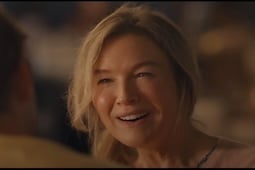
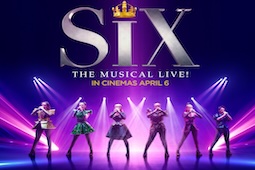
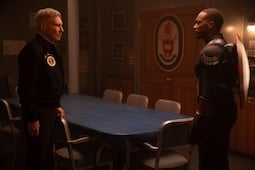
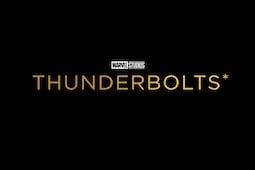
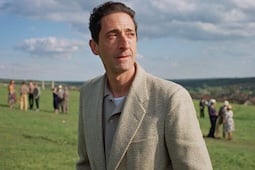
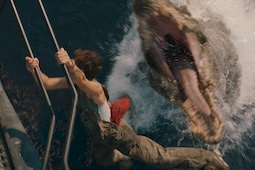




.jpg)
.png)






